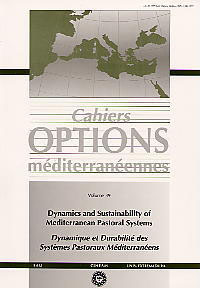| Article précédent | p. 273-276 | Article suivant |
Equine babesiosis: A disease linked to the extensive horse raising in the pasture land of Extremadura ('dehesa')
Coleto L.
Serologic testing was carried out to show antibodies to babesia equi and babesia caballi in mares raised in extensive regime in the 'dehesa' of Extremadura, their transmission to the mares' offspring and their permanence in the foals. We have studied 33 Andalusian mare and foal serums. The technique used has been that of indirect immunofluorescence (IFI). The result is 63.6 per cent of the mares and 54.5 per cent of the foals seropositive to B. equi. All serums were negative to B. caballi.
- [ Télécharger ]
- [ Exporter la citation ]
Vous pouvez télécharger la citation au format :
- [ Imprimer ]
- [OMC39]
Mots-clés
BABESIA EQUI, ESPAGNE, IMMUNOFLUORESCENCE
Citer cet article
Coleto L. Equine babesiosis: A disease linked to the extensive horse raising in the pasture land of Extremadura ('dehesa').
In : Etienne M. (ed.). Dynamics and sustainability of Mediterranean pastoral systems . Zaragoza : CIHEAM, 1999. p. 273-276. (Cahiers Options Méditerranéennes; n. 39). 9. Meeting of the Mediterranean Sub-Network of the FAO-CIHEAM Inter-Regional Cooperative Research and Development Network on Pastures and Fodder Crops, 1997/11/26-29, Badajoz (Spain). http://om.ciheam.org/om/pdf/c39/99600087.pdf




